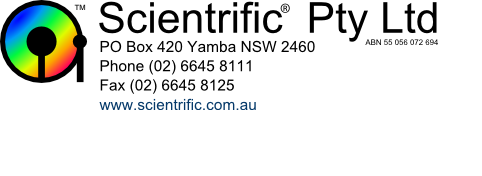164 results found for 'Red'. Prev |1|2|3|4|5|6|7 | Next | View 100 per page
Low relevance matches: 542 other results may be of interest to you. Show low relevance matches
DNA - The transmission of heritable characteristics from one generation to the next involves DNA and genes ACSSU097 Year 6 Physical Sciences
Electrical Circuits - Electrical energy can be transferred and transformed in electrical circuits and can be generated from a range of sources ACSSU115 Year 7 Earth and Space Sciences
Earth Moon Sun - Predictable phenomena on Earth, including seasons and eclipses, are caused by the relative positions of the sun, Earth and the moon ACSSU229 Year 10 Physical Sciences
Forces and Motion - The motion of objects can be described and predicted using the laws of physics ACSBL029 Year 11 Biodiversity and the interconnectedness of life
Ecosystem dynamics - Models of ecosystem interactions (for example, food webs, successional models) can be used to predict the impact of change and are based on interpretation of and extrapolation from sample data (for example, data derived from ecosystem surveying techniques ACSBL085 Year 12 Heredity and continuity of life
DNA genes and the continuity of life - Frequencies of genotypes and phenotypes of offspring can be predicted using probability models, including Punnett squares, and by taking into consideration patterns of inheritance, including the effects of dominant, autosomal and sex-linked alleles and mu ACSBL090 Year 12 Heredity and continuity of life
Continuity of life on Earth - Natural selection occurs when selection pressures in the environment confer a selective advantage on a specific phenotype to enhance its survival and reproduction; this results in changes in allele frequency in the gene pool of a population ACSBL091 Year 12 Heredity and continuity of life
Continuity of life on Earth - In additional to environmental selection pressures, mutation, gene flow and genetic drift can contribute to changes in allele frequency in a population gene pool and results in microevolutionary change ACSCH056 Year 11 Molecular interactions and reactions
Intermolecular forces and gases - The shapes of molecules can be explained and predicted using three dimensional representations of electrons as charge clouds and using valence shell electron pair repulsion (VSEPR) theory ACSCH073 Year 11 Molecular interactions and reactions
Rates of chemical reactions - Catalysts, including enzymes and metal nanoparticles, affect the rate of certain reactions by providing an alternative reaction pathway with a reduced activation energy, hence increasing the proportion of collisions that lead to a chemical change ACSCH091 Year 12 Equilibrium acids and redox reactions
Chemical equilibrium systems - Over time, physical changes and reversible chemical reactions reach a state of dynamic equilibrium in a closed system, with the relative concentrations of products and reactants defining the position of equilibrium ACSCH096 Year 12 Equilibrium acids and redox reactions
Chemical equilibrium systems - Equilibrium position can be predicted qualitatively using equilibrium constants ACSCH097 Year 12 Equilibrium acids and redox reactions
Chemical equilibrium systems - Acids are substances that can act as proton (hydrogen ion) donors and can be classified as monoprotic or polyprotic depending on the number of protons donated by each molecule of the acid ACSCH098 Year 12 Equilibrium acids and redox reactions
Chemical equilibrium systems - The strength of acids is explained by the degree of ionisation at equilibrium in aqueous solution, which can be represented with chemical equations and equilibrium constants (Ka) ACSCH099 Year 12 Equilibrium acids and redox reactions
Chemical equilibrium systems - The relationship between acids and bases in equilibrium systems can be explained using the Brønsted Lowry model and represented using chemical equations that illustrate the transfer of hydrogen ions ACSCH100 Year 12 Equilibrium acids and redox reactions
Chemical equilibrium systems - The pH scale is a logarithmic scale and the pH of a solution can be calculated from the concentration of hydrogen ions; Kw can be used to calculate the concentration of hydrogen ions from the concentration of hydroxide ions in a solution ACSCH101 Year 12 Equilibrium acids and redox reactions
Chemical equilibrium systems - Acidbase indicators are weak acids or bases where the acidic form is of a different colour to the basic form ACSCH102 Year 12 Equilibrium acids and redox reactions
Chemical equilibrium systems - Volumetric analysis methods involving acidbase reactions rely on the identification of an equivalence point by measuring the associated change in pH, using chemical indicators or pH meters, to reveal an observable end point ACSCH103 Year 12 Equilibrium acids and redox reactions
Oxidation and reduction - A range of reactions, including displacement reactions of metals, combustion, corrosion, and electrochemical processes, can be modelled as redox reactions involving oxidation of one substance and reduction of another substance ACSCH104 Year 12 Equilibrium acids and redox reactions
Oxidation and reduction - Oxidation can be modelled as the loss of electrons from a chemical species, and reduction can be modelled as the gain of electrons by a chemical species; these processes can be represented using half equations ACSCH106 Year 12 Equilibrium acids and redox reactions
Oxidation and reduction - The relative strength of oxidising and reducing agents can be determined by comparing standard electrode potentials ACSCH107 Year 12 Equilibrium acids and redox reactions
Oxidation and reduction - Electrochemical cells, including galvanic and electrolytic cells, consist of oxidation and reduction half reactions connected via an external circuit that allows electrons to move from the anode (oxidation reaction) to the cathode (reduction reaction) ACSCH108 Year 12 Equilibrium acids and redox reactions
Oxidation and reduction - Galvanic cells, including fuel cells, generate an electrical potential difference from a spontaneous redox reaction; they can be represented as cell diagrams including anode and cathode halfequations ACSCH110 Year 12 Equilibrium acids and redox reactions
Oxidation and reduction - Cell potentials at standard conditions can be calculated from standard electrode potentials; these values can be used to compare cells constructed from different materials ACSCH130 Year 12 Structure synthesis and design
Properties and structure of organic materials - Data from analytical techniques, including mass spectrometry, xray crystallography and infrared spectroscopy, can be used to determine the structure of organic molecules, often using evidence from more than one technique ACSPH040 Year 11 Thermal nuclear and electrical physics
Electrical circuits - The energy available to charges moving in an electrical circuit is measured using electric potential difference, which is defined as the change in potential energy per unit charge between two defined points in the circuit ACSPH041 Year 11 Thermal nuclear and electrical physics
Electrical circuits - Energy is required to separate positive and negative charge carriers; charge separation produces an electrical potential difference that can be used to drive current in circuits ACSPH061 Year 11 Linear Motion and Waves
Linear motion and force - Representations, including graphs and vectors, and/or equations of motion, can be used qualitatively and quantitatively to describe and predict linear motion ACSPH064 Year 11 Linear Motion and Waves
Linear motion and force - Momentum is a property of moving objects; it is conserved in a closed system and may be transferred from one object to another when a force acts over a time interval ACSPH065 Year 11 Linear Motion and Waves
Linear motion and force - Energy is conserved in isolated systems and is transferred from one object to another when a force is applied over a distance; this causes work to be done and changes to kinetic and/or potential energy of objects ACSPH073 Year 11 Linear Motion and Waves
Waves - A mechanical system resonates when it is driven at one of its natural frequencies of oscillation; energy is transferred efficiently into systems under these conditions ACSPH076 Year 11 Linear Motion and Waves
Waves - A wave model explains a wide range of lightrelated phenomena including reflection, refraction, total internal reflection, dispersion, diffraction and interference; a transverse wave model is required to explain polarisation ACSPH021 Year 11 Thermal nuclear and electrical physics
Heating processes - Change of state involves internal energy changes to form or break bonds between atoms or molecules; latent heat is the energy required to be added to or removed from a system to change the state of the system
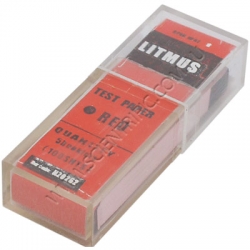
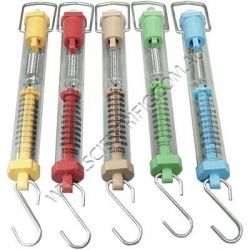
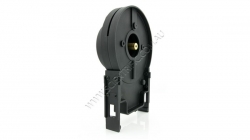
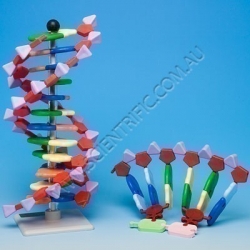

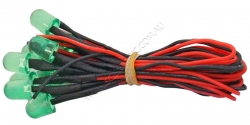
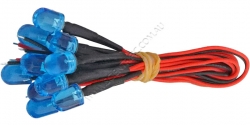
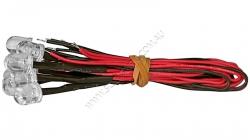

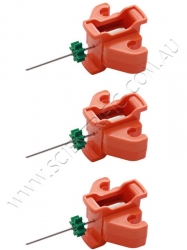
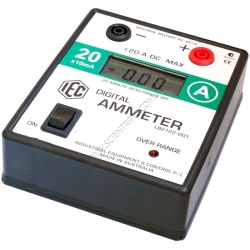
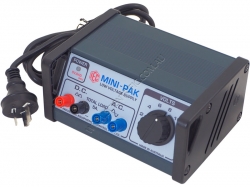

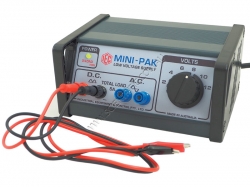
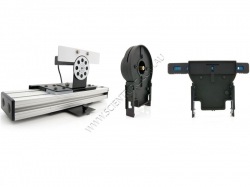
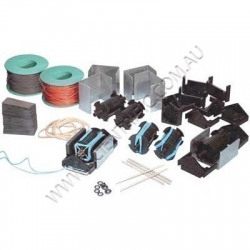
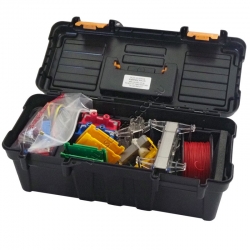
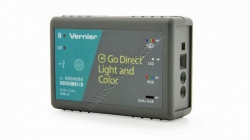
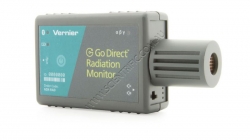
164 results found for 'Red'. Prev |1|2|3|4|5|6|7 | Next | View 100 per page
Low relevance matches: 542 other results may be of interest to you. Show low relevance matches
Curriculum resources related to 'Red'
ACSSU184 Year 10 Biological SciencesDNA - The transmission of heritable characteristics from one generation to the next involves DNA and genes ACSSU097 Year 6 Physical Sciences
Electrical Circuits - Electrical energy can be transferred and transformed in electrical circuits and can be generated from a range of sources ACSSU115 Year 7 Earth and Space Sciences
Earth Moon Sun - Predictable phenomena on Earth, including seasons and eclipses, are caused by the relative positions of the sun, Earth and the moon ACSSU229 Year 10 Physical Sciences
Forces and Motion - The motion of objects can be described and predicted using the laws of physics ACSBL029 Year 11 Biodiversity and the interconnectedness of life
Ecosystem dynamics - Models of ecosystem interactions (for example, food webs, successional models) can be used to predict the impact of change and are based on interpretation of and extrapolation from sample data (for example, data derived from ecosystem surveying techniques ACSBL085 Year 12 Heredity and continuity of life
DNA genes and the continuity of life - Frequencies of genotypes and phenotypes of offspring can be predicted using probability models, including Punnett squares, and by taking into consideration patterns of inheritance, including the effects of dominant, autosomal and sex-linked alleles and mu ACSBL090 Year 12 Heredity and continuity of life
Continuity of life on Earth - Natural selection occurs when selection pressures in the environment confer a selective advantage on a specific phenotype to enhance its survival and reproduction; this results in changes in allele frequency in the gene pool of a population ACSBL091 Year 12 Heredity and continuity of life
Continuity of life on Earth - In additional to environmental selection pressures, mutation, gene flow and genetic drift can contribute to changes in allele frequency in a population gene pool and results in microevolutionary change ACSCH056 Year 11 Molecular interactions and reactions
Intermolecular forces and gases - The shapes of molecules can be explained and predicted using three dimensional representations of electrons as charge clouds and using valence shell electron pair repulsion (VSEPR) theory ACSCH073 Year 11 Molecular interactions and reactions
Rates of chemical reactions - Catalysts, including enzymes and metal nanoparticles, affect the rate of certain reactions by providing an alternative reaction pathway with a reduced activation energy, hence increasing the proportion of collisions that lead to a chemical change ACSCH091 Year 12 Equilibrium acids and redox reactions
Chemical equilibrium systems - Over time, physical changes and reversible chemical reactions reach a state of dynamic equilibrium in a closed system, with the relative concentrations of products and reactants defining the position of equilibrium ACSCH096 Year 12 Equilibrium acids and redox reactions
Chemical equilibrium systems - Equilibrium position can be predicted qualitatively using equilibrium constants ACSCH097 Year 12 Equilibrium acids and redox reactions
Chemical equilibrium systems - Acids are substances that can act as proton (hydrogen ion) donors and can be classified as monoprotic or polyprotic depending on the number of protons donated by each molecule of the acid ACSCH098 Year 12 Equilibrium acids and redox reactions
Chemical equilibrium systems - The strength of acids is explained by the degree of ionisation at equilibrium in aqueous solution, which can be represented with chemical equations and equilibrium constants (Ka) ACSCH099 Year 12 Equilibrium acids and redox reactions
Chemical equilibrium systems - The relationship between acids and bases in equilibrium systems can be explained using the Brønsted Lowry model and represented using chemical equations that illustrate the transfer of hydrogen ions ACSCH100 Year 12 Equilibrium acids and redox reactions
Chemical equilibrium systems - The pH scale is a logarithmic scale and the pH of a solution can be calculated from the concentration of hydrogen ions; Kw can be used to calculate the concentration of hydrogen ions from the concentration of hydroxide ions in a solution ACSCH101 Year 12 Equilibrium acids and redox reactions
Chemical equilibrium systems - Acidbase indicators are weak acids or bases where the acidic form is of a different colour to the basic form ACSCH102 Year 12 Equilibrium acids and redox reactions
Chemical equilibrium systems - Volumetric analysis methods involving acidbase reactions rely on the identification of an equivalence point by measuring the associated change in pH, using chemical indicators or pH meters, to reveal an observable end point ACSCH103 Year 12 Equilibrium acids and redox reactions
Oxidation and reduction - A range of reactions, including displacement reactions of metals, combustion, corrosion, and electrochemical processes, can be modelled as redox reactions involving oxidation of one substance and reduction of another substance ACSCH104 Year 12 Equilibrium acids and redox reactions
Oxidation and reduction - Oxidation can be modelled as the loss of electrons from a chemical species, and reduction can be modelled as the gain of electrons by a chemical species; these processes can be represented using half equations ACSCH106 Year 12 Equilibrium acids and redox reactions
Oxidation and reduction - The relative strength of oxidising and reducing agents can be determined by comparing standard electrode potentials ACSCH107 Year 12 Equilibrium acids and redox reactions
Oxidation and reduction - Electrochemical cells, including galvanic and electrolytic cells, consist of oxidation and reduction half reactions connected via an external circuit that allows electrons to move from the anode (oxidation reaction) to the cathode (reduction reaction) ACSCH108 Year 12 Equilibrium acids and redox reactions
Oxidation and reduction - Galvanic cells, including fuel cells, generate an electrical potential difference from a spontaneous redox reaction; they can be represented as cell diagrams including anode and cathode halfequations ACSCH110 Year 12 Equilibrium acids and redox reactions
Oxidation and reduction - Cell potentials at standard conditions can be calculated from standard electrode potentials; these values can be used to compare cells constructed from different materials ACSCH130 Year 12 Structure synthesis and design
Properties and structure of organic materials - Data from analytical techniques, including mass spectrometry, xray crystallography and infrared spectroscopy, can be used to determine the structure of organic molecules, often using evidence from more than one technique ACSPH040 Year 11 Thermal nuclear and electrical physics
Electrical circuits - The energy available to charges moving in an electrical circuit is measured using electric potential difference, which is defined as the change in potential energy per unit charge between two defined points in the circuit ACSPH041 Year 11 Thermal nuclear and electrical physics
Electrical circuits - Energy is required to separate positive and negative charge carriers; charge separation produces an electrical potential difference that can be used to drive current in circuits ACSPH061 Year 11 Linear Motion and Waves
Linear motion and force - Representations, including graphs and vectors, and/or equations of motion, can be used qualitatively and quantitatively to describe and predict linear motion ACSPH064 Year 11 Linear Motion and Waves
Linear motion and force - Momentum is a property of moving objects; it is conserved in a closed system and may be transferred from one object to another when a force acts over a time interval ACSPH065 Year 11 Linear Motion and Waves
Linear motion and force - Energy is conserved in isolated systems and is transferred from one object to another when a force is applied over a distance; this causes work to be done and changes to kinetic and/or potential energy of objects ACSPH073 Year 11 Linear Motion and Waves
Waves - A mechanical system resonates when it is driven at one of its natural frequencies of oscillation; energy is transferred efficiently into systems under these conditions ACSPH076 Year 11 Linear Motion and Waves
Waves - A wave model explains a wide range of lightrelated phenomena including reflection, refraction, total internal reflection, dispersion, diffraction and interference; a transverse wave model is required to explain polarisation ACSPH021 Year 11 Thermal nuclear and electrical physics
Heating processes - Change of state involves internal energy changes to form or break bonds between atoms or molecules; latent heat is the energy required to be added to or removed from a system to change the state of the system
Products related to 'Red'
IEC Switch Rocker Mains Illum Red for IEC Equip
IEC RED ILLUMINATED MAINS ROCKER SWITCH FOR IEC EQUIPMENT
A replacement 240V mains red illuminating rocker type switch used as the on/off switch for many IEC products.
Order code: PA3930-001
IEC Terminal 4mm Socket Red Short Stem with Bush
IEC TERMINAL 4mm SOCKET RED SHORT STEM WITH BUSH
IEC designed red short stem terminal with spin free head, 4mm socket for banana plugs and red coloured insulation bush and collar provided to insulate the terminal from the panel. Does not protrude into the panel and uses ...
Order code: PA3992-101
IEC Terminal 4mm Socket Red Long Stem Plain
IEC TERMINAL 4mm SOCKET RED LONG STEM PLAIN
IEC designed red long stem terminal with spin free head, 4mm socket for banana plugs and without insulation bushes provided. The long stem protrudes through the panel and has 2BA thread.
Order code: PA4000-101
IEC Terminal 4mm Socket Red Long Stem with Bush
IEC TERMINAL 4mm SOCKET RED LONG STEM WITH BUSH
IEC designed red long stem terminal with spin free head, 4mm socket for banana plugs and red coloured insulation bush and collar provided to insulate the terminal from the panel. The long stem protrudes through the panel and...
Order code: PA4002-101
IEC Wire Copper Bellwire Red 1x0.5mm 100m
IEC RED INSULATED COPPER BELL WIRE 0.5mm x 100m
A 100m reel of 0.5mmD single strand RED insulated copper bell wire.
Order code: PA4741-001

Test Paper Litmus Red Pack of 100 Strips
Pack of 100 strips of red litmus test paper. Supplied in a plastic phial containing 5 books of 20 strips, strip size approximately 55x8mm.
Order code: SC14269

Spring Balance Cylindrical 2000g/20N Red
A quality spring balance at a fantastic price. Marked in grams on one side and Newtons on the other side. A zero adjustment is incorporated to adjust for wear and tear.
Range: 2000g/20N
Colour: Red
Order code: SC7053

Vernier Red Diffraction Laser
VERNIER RED DIFFRACTION LASER
This Class 2 Red Diffraction Laser is a replacement laser for the Vernier Diffraction Apparatus
It provides a clean monochromatic light source with a wavelength of 636nm.
Note: the Vern...
Order code: RDL-DAK
Molymod Oxygen Red 5 Holes 23mm 90/120 Tribipyramidal
23mm MOLYMOD OXYGEN ATOM 5 HOLES
A pack of 10 red Oxygen atoms 23mm diameter and with 5 holes angled at 90° and 120° tribipyramidal.
A quality, genuine Molymod® product fully compatible with all other genuine Molymod® products.
Order code: MA-516-10

Molymod Mini DNA Spare Red Deoxyribose
MOLYMOD DEOXYRIBOSE RED
A pack of 6 red Deoxyribose units for Molymod DNA and RNA models.
A quality, genuine Molymod® product fully compatible with all other genuine Molymod® products.
Order code: AMDP-DO-RIB-6



Molymod Mini DNA Spare Dark Red Ribose
MOLYMOD RIBOSE DARK RED
A pack of 6 dark red Ribose units for Molymod DNA and RNA models.
A quality, genuine Molymod® product fully compatible with all other genuine Molymod® products.
Order code: AMDP-RIB-6



LED Green with 200mm Cables Pack of 10
Green LED soldered to 200mm of red and black teflon insulated copper wire, the bare wire (cable) ends have been soldered to prevent fraying. To prevent shorting the soldered LED/wire joints are protected with heat shrink insulation.
Specifications:
3.0 to 3.4V @ 20mA
Sold...
Order code: SC33002



LED Blue with 200mm Cables Pack of 10
Blue LED soldered to 200mm of red and black teflon insulated copper wire, the bare wire (cable) ends have been soldered to prevent fraying. To prevent shorting the soldered LED/wire joints are protected with heat shrink insulation.
Specifications:
3.0 to 3.4V @ 20mA
Sold ...
Order code: SC33003



LED Clear Body turns Green with 200mm Cables Pack of 5
A 'water clear' bodied LED that turns green when voltage is applied.
The benefit of the clear body is that when measuring the photon wavelength using a spectrometer or by a diffraction method then the wavelength is not filtered by a coloured case and so a pure wavelength can ...
Order code: SC33007C



LED Clear Body turns Blue with 200mm Cables Pack of 5
A 'water clear' bodied LED that turns blue when voltage is applied.
The benefit of the clear body is that when measuring the photon wavelength using a spectrometer or by a diffraction method then the wavelength is not filtered by a coloured case and so a pure wavelength can be...
Order code: SC33008C



KidWind GENPack Generator Kit
KIDWIND GENPACK
The GENPack allows students to construct their own electrical generator and perform experiments with electricity and magnetism.
Changing variables in the generator design will impact current and voltage output. The GENPack is perfect for physics and elec...
Order code: KW-GP



IEC Digital Ammeter 20A DC
IEC DIGITAL AMMETER 20A DC
This Australian made DC Ammeter is designed to be virtually indestructible in the classroom. There are no knobs or fuses to replace.
Powered by an easily changed 9V battery, a "LO BATT" alarm displays well before the battery must be replaced ...
Order code: LB2122-001



IEC Power Supply 2 to 12V AC/DC Mini Pack
IEC MINI-PAK POWER SUPPLY
A compact general purpose power supply for student experiments where DC ripple and close voltage monitoring is not required. It provides switched AC and DC voltages at 2, 4, 6, 8, 10 and 12V AC and DC at about 5 to 6A. The DC output is full wave ...
Order code: LB2629-001


| Purchase QTY: (Each) | 1+ |
|---|---|
| Base price | $214.00 |
| Scientrific's price | $209.00 |
| Educational special | $186.00 |
| CLICK FOR QTY PRICING | |
| Prices exclude GST and freight | |

Dynamo / Generator - Hand Cranked Transparent
A well made hand cranked dynamo producing DC current/voltage that is ideal for experiments in energy transformation, electricity and gearing.
Wire two dynamos together to do energy experiments showing mechanical to electrical and electrical to mechanical energy, efficiency etc...
Order code: SC179015
| Purchase QTY: (Each) | 1+ |
|---|---|
| Scientrific's price | $23.00 |
| CLICK FOR QTY PRICING | |
| Prices exclude GST and freight | |

IEC Student Power Supply with Leads
IEC MINI-PAK POWER SUPPLY WITH LEADS
A compact general purpose power supply with connecting leads for student experiments where DC ripple and close voltage monitoring is not required. It provides switched AC and DC voltages at 2, 4, 6, 8, 10 and 12V AC and DC at about 5 t...
Order code: LB2629C


| Purchase QTY: (Each) | 1+ |
|---|---|
| Base price | $221.20 |
| Scientrific's price | $216.00 |
| Educational special | $193.00 |
| CLICK FOR QTY PRICING | |
| Prices exclude GST and freight | |

Vernier Diffraction Apparatus
VERNIER DIFFRACTION APPARATUS
The Vernier Diffraction Apparatus lets students create, view and measure diffraction and interference patterns. The included Red Diffraction Laser provides a clean monochromatic light source. Slits are made by depositing metal film on glass, ...
Order code: DAK



IEC Electric Motor Kit Hodson Self Build
IEC HODSON MOTOR KITS
The quality Australian designed and manufactured IEC Hodson Motor Kit includes 2 motors individually packed in sturdy plastic storage jars. Designed to teach electromagnetism and how electric motors work, the kits are simple to assemble with b...
Order code: EM2193-201


| Purchase QTY: (Set of 2) | 1+ |
|---|---|
| Scientrific's price | $55.00 |
| Educational special | $50.00 |
| CLICK FOR QTY PRICING | |
| Prices exclude GST and freight | |

IEC Induction Kit Hodson Transformer and Motor
IEC HODSON INDUCTION KIT
This quality Australian designed and manufactured IEC Hodson Induction Kit enables students to study magnetic induction, transformers and AC/DC motor theory. Students wind their own coils, assemble their own iron circuits, connect to low voltage p...
Order code: EM1973-001


| Purchase QTY: (Each) | 1+ |
|---|---|
| Base price | $348.90 |
| Scientrific's price | $341.00 |
| Educational special | $315.00 |
| CLICK FOR QTY PRICING | |
| Prices exclude GST and freight | |

Vernier Go Direct Light and Colour Sensor
VERNIER GO DIRECT LIGHT AND COLOUR SENSOR:
Vernier's Go Direct Light and Colour Sensor is a powerful and versatile light sensor that measures light in the visible to ultraviolet electromagnetic spectrum. An RGB colour sensor detects relative contributions of primary colou...
Order code: GDX-LC



Vernier Go Direct Radiation Monitor - Geiger Counter
VERNIER GO DIRECT RADIATION MONITOR
Vernier's Go Direct Radiation Monitor detects alpha, beta, gamma and X-ray radiation and can be used to explore radiation statistics, measure the rate of nuclear decay and monitor radon progeny.
This easy-to-use sensor consists of a...
Order code: GDX-RAD


164 results found for 'Red'. Prev |1|2|3|4|5|6|7 | Next | View 100 per page


